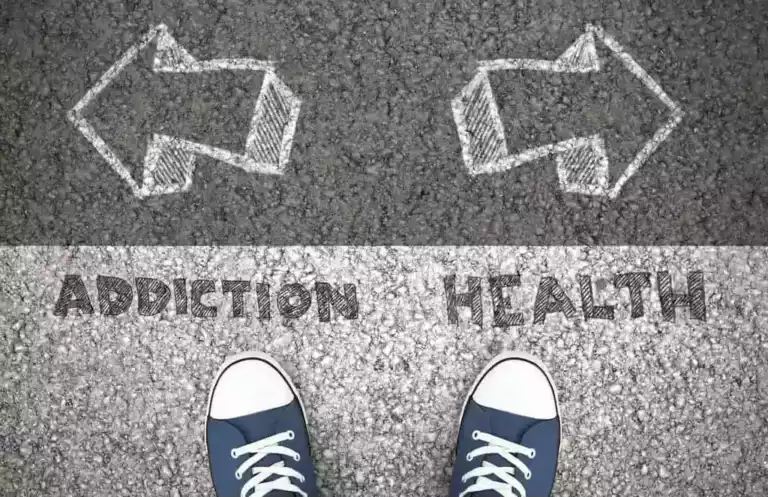
Medically managed withdrawal or detoxification can be safely carried out under medical guidance. Medications, such as benzodiazepines, are given to help control withdrawal symptoms. If necessary, patients may receive intravenous fluids, vitamins, and other medications to treat hallucinations or other symptoms caused by withdrawal. With the use of appropriate medications and behavioral therapies, people can recover from AUD. If you drink more alcohol than that, consider cutting back or quitting. By Geralyn Dexter, PhD, LMHCDexter has a doctorate in psychology and is a licensed mental health counselor with a focus on suicidal ideation, self-harm, and mood disorders.
Signs You May Have a Drinking Problem
Mild is classified as 2 to 3 symptoms, moderate is classified as 4 to 5 symptoms, and severe is classified as 6 or more symptoms, according to the DSM-5. Alcohol Use Disorder is a pattern of disordered drinking that leads to significant distress. It can involve withdrawal symptoms, disruption of daily tasks, discord in relationships, and risky decisions that place oneself or others in danger.
Understanding Alcoholism and the Signs of Severe Drinking Problems

People under 21, the legal age limit to drink alcohol in the U.S., have a higher risk of dying from binge drinking or other risky behaviors. This includes driving under the influence, injuries, sexual assault, or violence. Thousands of people under 21 die from alcohol-related deaths in the U.S. each year. Mental health plays a significant role in all forms of substance abuse.

Prevention of Alcohol Use Disorder

About 30% of people who commit suicide drink alcohol right before. Driving under the influence of alcohol is dangerous because it affects your ability to reason, think clearly, judge, or follow traffic laws. It puts your life and the safety of those around you at risk, too. On average, drunk driving kills around 28 people per day in the U.S. In the DSM-5, alcohol use disorder is further classified into categories of mild, moderate, and severe. AUD can cause unintended consequences even before a child is born.
The Problem With Calling Someone an “Alcoholic”
- People with severe or moderate alcohol use disorder who suddenly stop drinking could develop delirium tremens (DT).
- You’ll soon start receiving the latest Mayo Clinic health information you requested in your inbox.
- Along with the hereditary elements, a person’s association with others and the environment can contribute to the development of alcoholism.
- After all, 54.9% of American adults drink within any given month, so alcohol use is normalized.
Having schizophrenia, post-traumatic stress disorder or bipolar disorder can be frustrating and difficult. People with mental health disorders tend to drink to mitigate their symptoms and feel better. Even if alcohol temporarily eases symptoms of depression and anxiety, drinking frequently can lead to a high tolerance and, eventually, alcoholism. On top of that, alcohol can actually make mental health symptoms worse at times.
By Buddy TBuddy T is a writer and founding member of the Online Al-Anon Outreach Committee with decades of experience writing about alcoholism. Because he is a member of a support group that stresses the importance of anonymity at the public level, he does not use his photograph or his real name on this website. In addition to getting professional treatment and support, there are things why do people become alcoholics that you can do to help feel better and improve your chances of recovery. Medical detox followed by alcohol rehab treatment will strengthen one’s resistance to triggers as they move forward into a sober life. Contacting The Recovery Village can help you leave alcohol behind and take back control of your life. It is a detailed combination of genetic factors and environmental cues.

In fact, according to the World Health Organization, alcohol-related deaths total around 3 million each year globally. Everyday Health follows strict sourcing guidelines to ensure the accuracy of its content, outlined in our editorial policy. We use only trustworthy sources, including peer-reviewed studies, board-certified medical experts, patients with lived experience, and information from top institutions. This psychologist has found that some girls and women suffer deeply when their brothers struggle with substance use disorder. Alcohol-free cocktails and beer, along with cannabis-infused beverages, are gaining users. The pathway to healing and recovery is often a process that occurs over many years.

Relationships may deteriorate, as their social circle narrows to other drug or alcohol users. Their work may decline as well, and they may lose a spiritual or religious practice they once valued. For many, beer, wine, and spirits conjure up thoughts of social gatherings and tipsy fun. But alcohol is a nervous system depressant and easily alters behavior, culminating in some cases in the emotional pain and physical disintegration of alcohol addiction, colloquially known as alcoholism. Experts continue to debate the benefits and risks of drinking and passionately argue over whether moderation or complete abstinence is the best option for those who struggle with alcoholism.
- Experiencing more than one symptom indicates that a person has an alcohol use disorder and needs specialized treatment to recover.
- Because denial is common, you may feel like you don’t have a problem with drinking.
- AA is not for everyone and there are plenty of different treatment options, but it can be successful and meaningful for those who choose it.
- By Buddy TBuddy T is a writer and founding member of the Online Al-Anon Outreach Committee with decades of experience writing about alcoholism.
- However, having a parent with alcohol use disorder is a risk factor that may make a person more likely to develop the condition themselves.
More on Substance Abuse and Addiction
As harmful and debilitating as AUD can be for both the person with the disease and their loved ones, there are many approaches that you can take to manage the condition. Everyone’s road to recovery differs; treatments can occur in an inpatient or outpatient medical settings, individual or group sessions with therapists, or other specialty https://ecosoberhouse.com/ programs. There are effective ways to treat this disease and steps you can take to help a loved one enter recovery. This article discusses alcohol use disorder symptoms and strategies for treatment and intervention. Some people prefer to try cutting back or quitting on their own before committing time and money to rehab.
